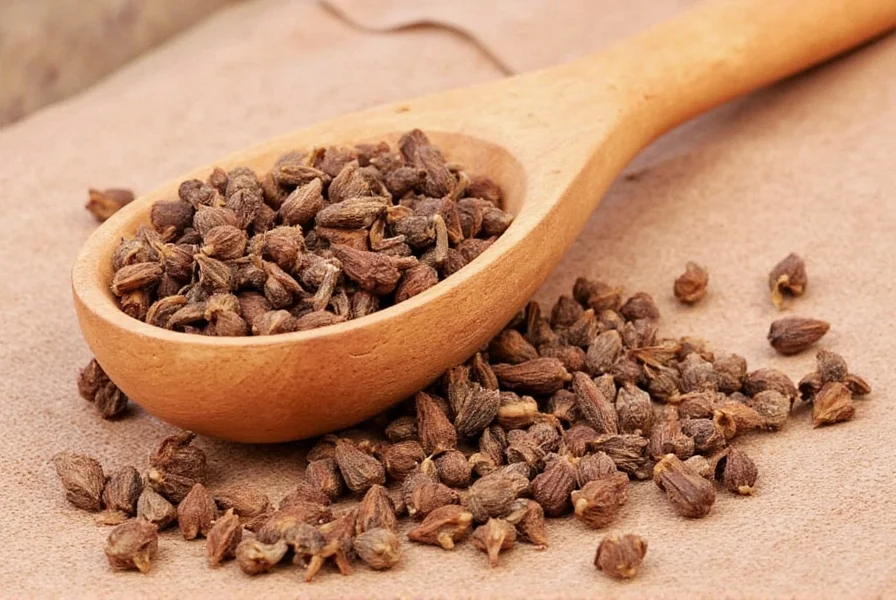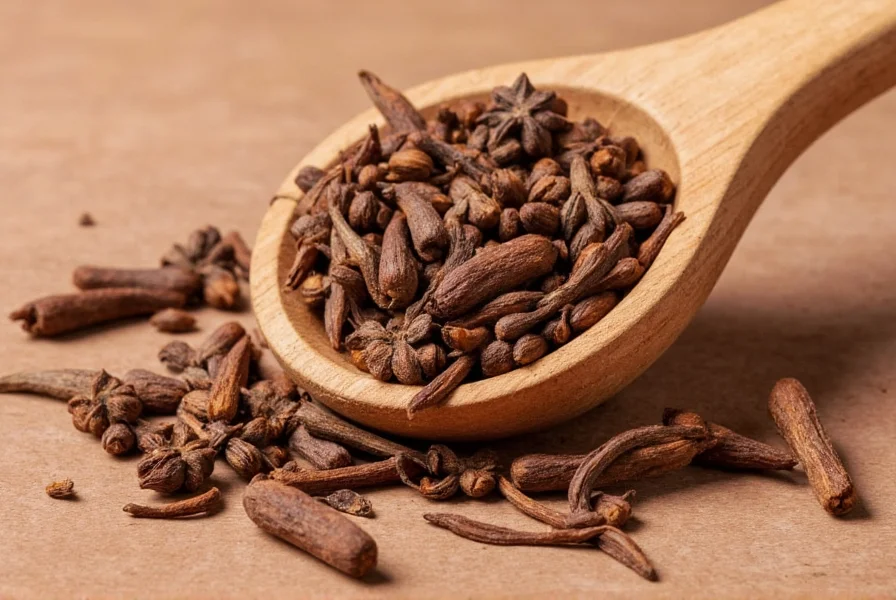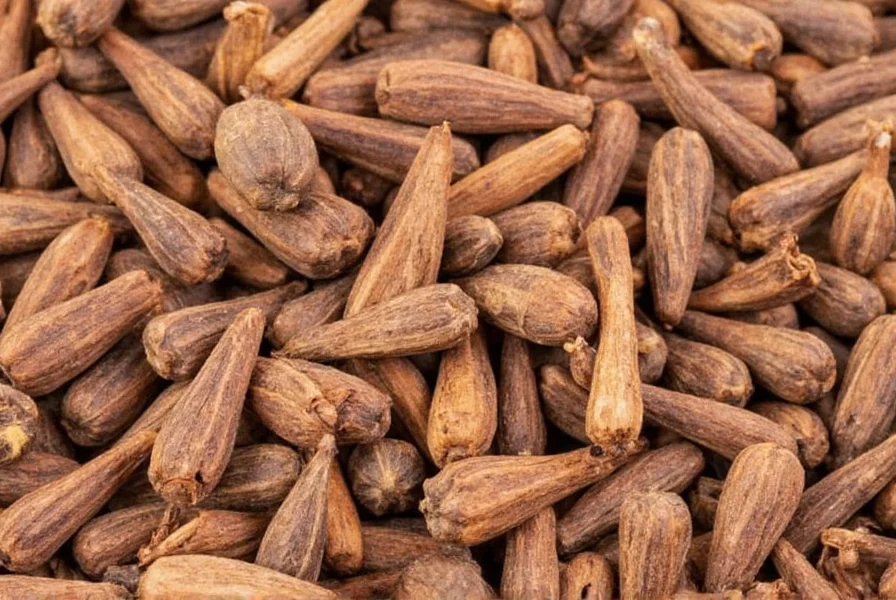The best replacements for cloves in cooking and baking are allspice (use 1:1 ratio), cinnamon (use half the amount), nutmeg (use half the amount), or a blend of apple pie spices. Each substitute offers similar warm, sweet notes but with distinct flavor profiles that work best in specific recipes like mulled wine, spice cakes, or holiday ham glazes.
Running out of cloves mid-recipe can derail your culinary plans, but fortunately, several common pantry staples can effectively stand in for this distinctive spice. Cloves deliver a potent combination of sweet, warm, and slightly peppery notes with subtle citrus undertones, making them essential in many global cuisines and holiday dishes. Understanding which substitute works best for your specific recipe ensures your dish maintains the intended flavor profile without compromising quality.
Whether you're preparing a traditional Indian curry, baking gingerbread cookies, or making mulled wine, knowing how to properly substitute cloves prevents recipe failures. The key is recognizing that while no single spice perfectly replicates cloves' unique flavor, several alternatives can provide similar aromatic qualities when used correctly. This guide explores the most effective clove replacements, including precise substitution ratios and recipe-specific recommendations to help you navigate your cooking with confidence.
Top Clove Substitutes and Their Flavor Profiles
Each clove alternative brings its own distinctive characteristics to dishes. Understanding these differences helps you select the optimal replacement based on your recipe's requirements and desired flavor outcome.
| Substitute | Flavor Profile | Best Used In | Substitution Ratio |
|---|---|---|---|
| Allspice | Combines notes of cloves, cinnamon, and nutmeg | Caribbean jerk seasoning, pickling, spice cakes | 1:1 replacement |
| Cinnamon | Sweet, woody, warm with less intensity | Baked goods, rice pudding, apple dishes | ½ tsp per 1 tsp cloves |
| Nutmeg | Earthy, nutty, slightly sweet with warm notes | Custards, béchamel sauce, holiday beverages | ½ tsp per 1 tsp cloves |
| Cardamom | Floral, citrusy, complex with eucalyptus notes | Scandinavian baking, chai tea, Middle Eastern dishes | ½ tsp per 1 tsp cloves |
| Apple Pie Spice | Pre-mixed blend of cinnamon, nutmeg, allspice | Fruit desserts, compotes, baked apples | 1 tsp per 1 tsp cloves |
When to Choose Specific Clove Alternatives
Not all substitutes work equally well across every application. Consider these recommendations when selecting your replacement for cloves based on your specific dish.
For Baking Applications
When substituting cloves in baked goods like gingerbread, spice cakes, or holiday cookies, allspice provides the closest flavor match. Its complex profile bridges the gap between cloves' intensity and cinnamon's sweetness. For delicate cakes where cloves might overpower, try using a combination of ¼ teaspoon cinnamon and ¼ teaspoon nutmeg per teaspoon of cloves required. This blend maintains warmth without dominating the final product.

Cooking Savory Dishes
In savory applications like braises, stews, or rice dishes, allspice remains the top choice for replacing cloves. For Indian curries that traditionally use whole cloves, try adding allspice early in the cooking process to allow its flavors to meld with other spices. When preparing Middle Eastern dishes like kabsa or maqluba, cardamom makes an excellent alternative, providing similar aromatic complexity without cloves' distinctive bite.
For Beverages and Simmered Drinks
Mulled wine, chai tea, and other simmered beverages benefit from cinnamon as a primary clove substitute. Use a cinnamon stick instead of whole cloves for easy removal after steeping. For a more complex flavor profile in holiday drinks, combine equal parts cinnamon, nutmeg, and allspice to create a homemade "clove alternative blend" that captures cloves' essence without overwhelming the beverage.
Advanced Substitution Techniques
Professional chefs often employ strategic blending when replacing hard-to-match spices like cloves. These techniques help maintain recipe integrity when your spice cabinet lacks this essential ingredient.
Create a Custom Clove Substitute Blend
For recipes where cloves play a starring role, combine:
- ½ teaspoon ground cinnamon
- ¼ teaspoon ground allspice
- ¼ teaspoon ground nutmeg
This mixture approximates cloves' complex flavor profile better than any single substitute. Use this blend in equal amounts to replace ground cloves in baking recipes or spice rubs.
Whole Clove Alternatives
When recipes call for whole cloves (often for studding ham or simmering in liquids), use these alternatives:
- Whole allspice berries (use same quantity)
- Cinnamon sticks broken into smaller pieces
- Cardamom pods lightly crushed to release flavor
Remember to remove these substitutes before serving, just as you would with whole cloves.
When Substitution Isn't Recommended
While most recipes tolerate clove substitutions well, certain traditional dishes rely on cloves' unique chemical compounds that alternatives cannot fully replicate. These include:
- Classic Indian garam masala (where cloves provide essential balance)
- Traditional Chinese five-spice powder
- Some pickling recipes where cloves' antimicrobial properties matter
In these cases, consider making a special trip to the store rather than substituting, as the final product may significantly differ from expectations.
Storage Tips for Cloves and Substitutes
Proper storage extends the shelf life of both cloves and their substitutes, preserving their volatile oils and flavor compounds. Store whole cloves in airtight containers away from light and heat—they maintain potency for 3-4 years. Ground cloves last 1-2 years. For optimal freshness of substitutes:
- Keep whole spices (cinnamon sticks, allspice berries) in dark glass jars
- Store ground spices in the freezer for extended shelf life
- Buy small quantities of pre-ground substitutes to ensure freshness

Understanding Flavor Chemistry in Substitutions
The science behind successful spice substitution lies in understanding the primary compounds that create each spice's distinctive flavor. Cloves derive their characteristic aroma primarily from eugenol (70-90%), which gives that familiar warm, spicy-sweet note. Allspice contains eugenol too (around 5-15%), explaining why it's the closest substitute. Cinnamon's dominant compound is cinnamaldehyde, while nutmeg features myristicin. When substituting, consider how these chemical profiles interact with other ingredients in your recipe for optimal results.
Frequently Asked Questions
Can I use cinnamon instead of cloves in apple pie?
Yes, cinnamon makes an excellent substitute for cloves in apple pie. Use half the amount of ground cinnamon compared to the cloves called for in your recipe. For every 1 teaspoon of cloves, use ½ teaspoon of cinnamon to maintain balanced flavor without overpowering the apples.
What's the best substitute for cloves in ham glaze?
Allspice is the best substitute for cloves in ham glaze, using a 1:1 ratio. If making a honey-mustard glaze, combine ½ teaspoon allspice with ¼ teaspoon cinnamon for every teaspoon of cloves required. This maintains the warm, sweet complexity that complements the ham's saltiness.
How do I substitute whole cloves in mulled wine?
For mulled wine, replace whole cloves with a cinnamon stick broken into smaller pieces. Use one 2-inch cinnamon stick piece for every 4-6 whole cloves called for. Alternatively, add 3-4 allspice berries per cup of liquid for similar warming notes without cloves' distinctive bite.
Can nutmeg replace cloves in pumpkin pie?
Yes, nutmeg works well as a clove substitute in pumpkin pie. Use half the amount of nutmeg compared to cloves (½ teaspoon nutmeg for every 1 teaspoon cloves). For best results, combine with equal parts cinnamon to recreate cloves' complex warmth without overwhelming the pie's delicate spice balance.
Why shouldn't I use too much cinnamon as a clove substitute?
Cinnamon contains different primary compounds than cloves and can easily dominate a dish when overused. Cloves have intense eugenol notes that cinnamon lacks, so using equal amounts creates an unbalanced flavor profile. Stick to half the amount of cinnamon compared to cloves to prevent your dish from becoming overly sweet and one-dimensional.











 浙公网安备
33010002000092号
浙公网安备
33010002000092号 浙B2-20120091-4
浙B2-20120091-4